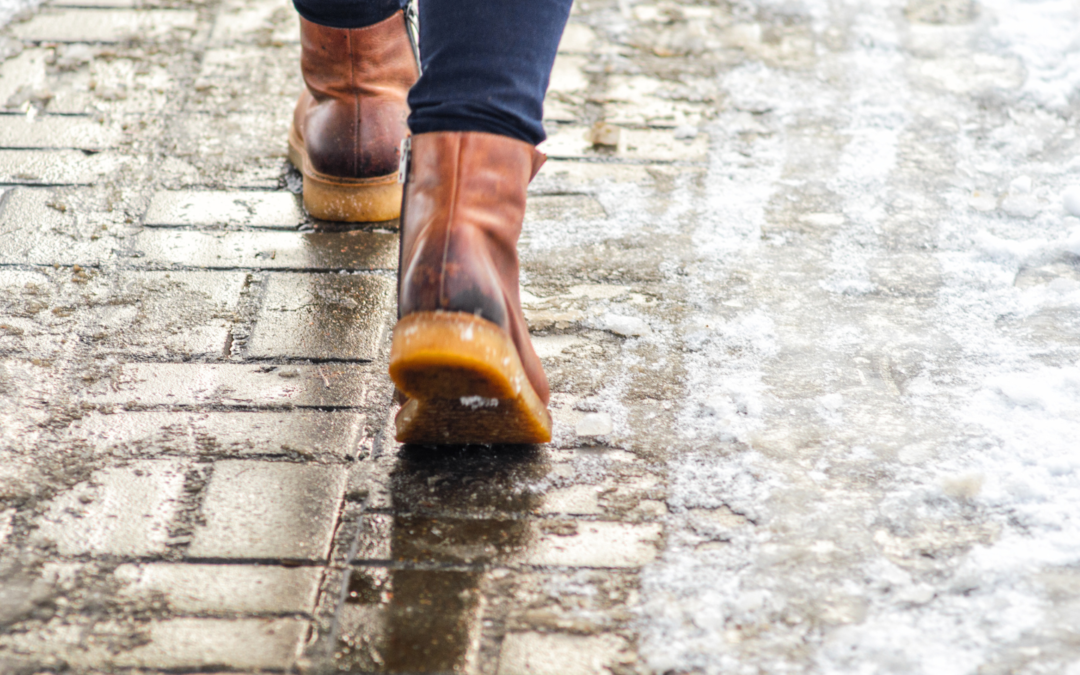When the weather turns cold and snow and ice make roads and walkways hazardous, slip and fall injuries can become common. When they do occur under these conditions, it’s easy to see why one might believe personal injury damages should automatically result. The truth is these kinds of personal injury claims can be very difficult to prove without taking the steps necessary to prove fault.
(Avoid These Mistakes When Filing a Slip and Fall Claim)
Slip and falls injuries that stem from dangerous weather conditions, though hazardous, don’t necessarily mean a homeowner or a store owner is at fault. If ice or snow pile up, it’s not necessarily a slam dunk that the owner did or even should have known of the danger (or that the injured party is completely absolved of the risk). There are still four distinct factors that need to be demonstrated should an individual filing a personal injury claim hope to win damages:
1) An Unnatural Level of Snow, Water or Ice Accumulated to Cause the Accident: The fact is snow and ice build up. Water pools. It’s a fact of life and people have to be prepared to get around in those conditions. But should an unnatural level of snow pile up, there may be adequate cause for a claim should an injury result. Let’s say there is a snow storm and a store owner has snow from the parking lot plowed to clear paths for cars to park in, but that the resulting piles of snow on either side each parking spot create a hazard for customers walking from their cars to the store. Should someone injure themselves trying to get around those large piles of snow, they may have a slip and fall personal injury claim in Illinois. Likewise, let’s say those snow piles have melted and then frozen days later after a severe cold snap, causing unusually large sheets of ice in the parking lot. These may be considered unnatural accumulations of ice, a situation in this case created by the store owner, and should they cause an injury could be cause for a slip and fall claim.
If you can establish that the hazard resulted from an unnatural accumulation of snow, water or ice in your claim, it’s vitally important that you document what you can with photos, witness testimony and any other evidence that shows the conditions at the time of the accident.
Building your claim based on the fact that the snow or ice or water that caused the accident represented an unnatural accumulation is probably your most important task in recovering damages in your slip and fall claim in Illinois. Of course, other states have different requirements. But in Illinois, slipping on snow on a sidewalk and spraining your ankle won’t likely win any personal injury damages.
The Hazardous Conditions Were the Cause of Your Injuries: This sounds like a no-brainer, but you’d be surprised how many plaintiffs seek damages because they were exposed to a dangerous situation and fell. The fact is if you suffered no real injuries as a result, you’ve got no claim. The best way to establish injuries is to seek medical care at the outset. Then you can work your way back and establish that those injuries resulted from your fall and that the fall resulted from the conditions onsite.
The Responsible Party Knew (or Should Have Known) of the Hazardous Conditions, and Had the Opportunity to Correct Them: This may be the most challenging part of your personal injury claim. Documenting the amount of the time that the conditions existed can help, but still you have to establish that the owner at the very least should have known they were present and presented a danger to those on the property. Also, you’ve got to ensure you can prove they had adequate opportunity to mitigate or correct them. They have a duty of care to those on the property, but you’ve got to show that they shirked it.
If you’d like to discuss filing a personal injury claim based on a slip and fall accident that resulted in injuries, contact the experienced attorneys at Bizzieri Law Offices in Chicago (773.881.9000). We have a wealth of experience investigating personal injury claims, establishing evidence and proving liability in these cases and will work hard to secure the full scope of damages you deserve.

